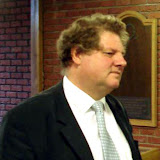Throughout Matthew’s gospel it has been made clear that good and bad live cheek by jowl in God’s world. Sometimes it is by no means obvious which is which. Those who think that they can see are often those whose eyes are blinded by planks. Those who say Lord, Lord are those who are not recognized by the Lord they affirm. There will come a day when all will be revealed but at the present moment, Jesus seems to imply, it is guesswork. That is why it is unwise to judge. Even his own authority has not been revealed to anyone except the Father. In the meantime, while the ignorant think he is the Son of David, the knowledgeable think he is Beelzebub. Those who claim to preach “good things” are hypocrites, they try to sound good but they speak from an evil heart. On the day of judgment their words will be judged.
It is in this context that Jesus tells a story about a farmer’s field. The farmer sows good seed. But in the night an enemy comes and deliberately sows weeds in the same field. By the time anyone notices what has happened the grain has already begun to form in the good plants. But to try to remove the weeds will probably result in pulling up the good with the bad because they have become so entangled. The harvesters will have to reap the good with the bad and then sort out the mess afterwards; that way the bad can be destroyed and the good will be saved.
The essence of the passage seems to be an attack on the separatist cults of the time, the Pharisees who tried to separate themselves from other people to keep their holiness intact and in particular the even more elite Qumran communities. The world is as mixed as when a woman mixes yeast with flour. Sometimes it seems like a stony field – yet hidden within it is a treasure of untold price; a sea containing fish edible and bad. We spend our life searching for treasure, dragging our faith through the sea looking for fish, examining through prayer the haul of every day seeking to discriminate between the good and the bad. There will come a time when the difference will be obvious and the judgment made. And when that day comes not all the new will be good – nor all the antiques bad. It is not as simple as that. In vain we look for a hallmark to ascertain that which is treasure: there are no signs.
Jonah was thought by his fellow travelers to be the cause of their troubles – they threw him overboard, but in fact he was a prophet of God. The big fish was thought to be Leviathan – the enemy of God and the mischievous and wicked ruler of the wild and uncontrollable sea. But it turned out to be Jonah’s saviour. Nineveh was being prepared for destruction but ended up being saved. The plant under which Jonah was sheltering in the sweltering heat was destroyed by a worm. The whole point of the book of Jonah is that nothing is quite as it seems. The sign of Jonah is no sign at all. That, after all is the topsy-turvy world of the gospel, where the meek inherit the earth, the poor are richly blessed, and burial in a tomb marks not an ending but a beginning.
But Satan is a clever counterfeiter: he copies God, except that that which God does openly by day, the devil does surreptitiously by night. And that which God sows is good – since the seed is his, so that which Satan sows is evil because he is evil. Only when the plant bears fruit can it be known for sure to be good or evil. In that sense the parable is also a comment on the judgment passages of chapter 12. But it is also a comment on how the disciples will be treated. Just as the religious leaders failed to recognize Jesus as being of God so his followers also will be mistaken for those who are evil and will be persecuted. Equally there will be those who point to the weaknesses within the church and see that as an excuse to excommunicate and root people out. The parables would seem to suggest that however good it would be to be able to do that, it is not a practical option. The result will simply be to ruin the good with the bad. Indeed the implication is that by doing that weeding the apparently holy ones will be carrying out precisely what Satan hoped would happen when he planted his seeds. They will indeed be doing his work rather than the work of the God they think they are serving.
So we take the world as we find it: and perhaps discover that even the church will be no better. Later in the gospel it will all be made even clearer in the parable of the sheep and goats. The treasure that we find is found in a field. It comes with mud attached. In order to acquire it we have to be committed to that which we do not treasure if we are to find and have that which we do. To love God means even loving enemies and those whom we normally would not respect because we cannot be sure that they are not the field in which the treasure of God’s kingdom is to be found. In our work as “fishers of men” we trawl the whole sea: we do not farm prime salmon.
Tuesday, 15 July 2008
Subscribe to:
Post Comments (Atom)

No comments:
Post a Comment